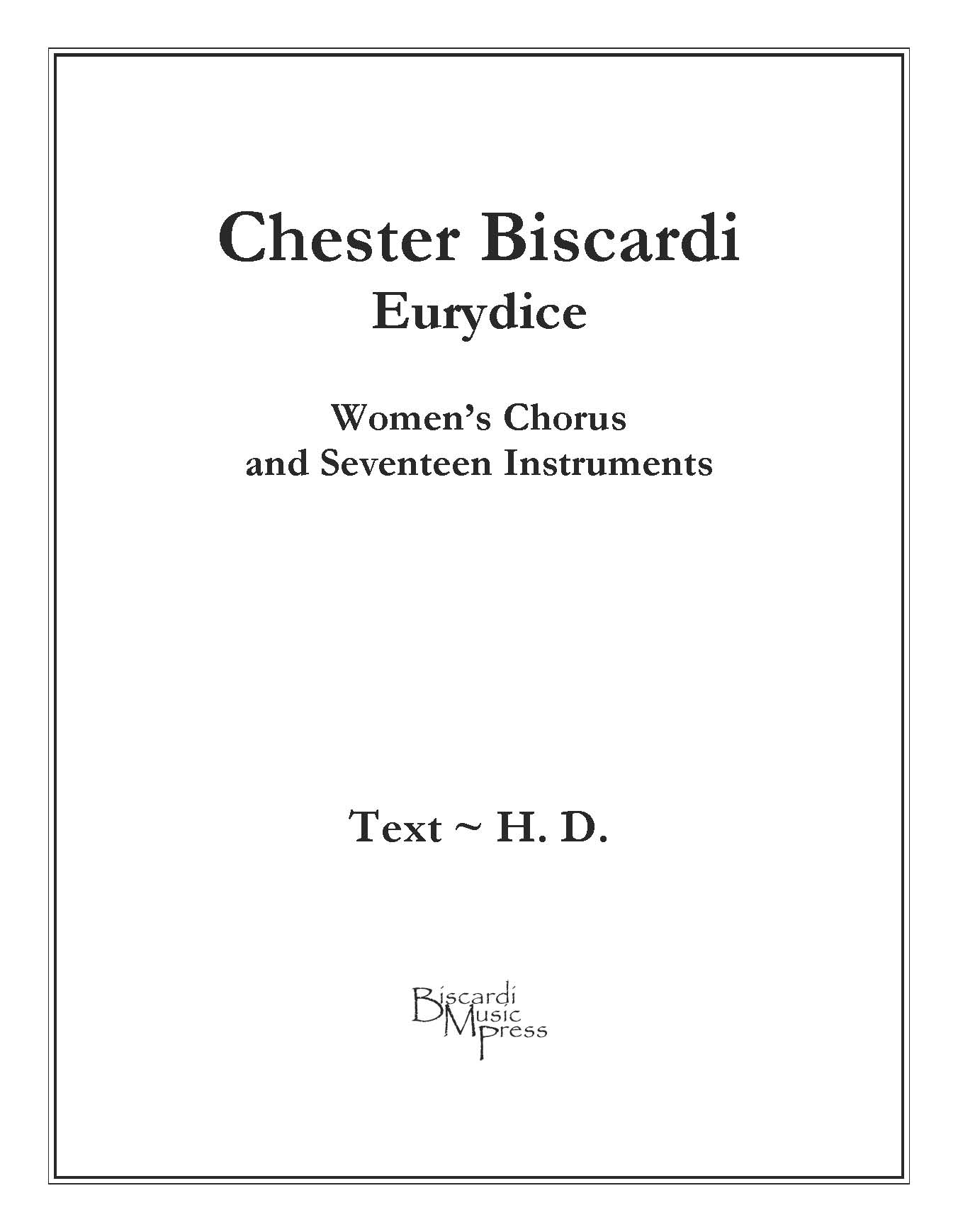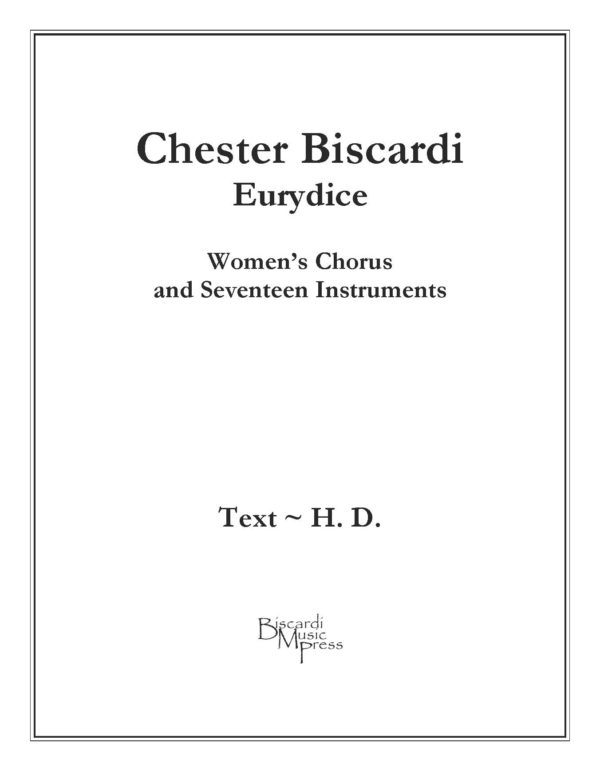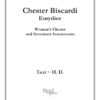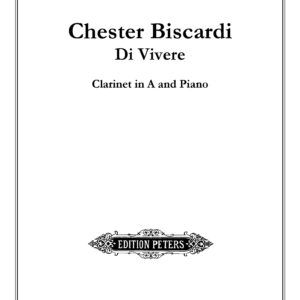Description
Premiere
1 December 1979
Anna Crusis Women's Choir / Catherine Roma, conductor
First Unitarian Church
Philadelphia, PA
Instrumentation
Sopranos in two parts, each including two soloists;
Altos in two parts, each including two soloists
2 Fl. (also Picc.), Alto Fl., Cl.; 2 Hn., 2 Trb.; 4 Vn., 4 Vc.; Pn.
Text
"Eurydice", by H. D.
Dedication
for the Anna Crusis Women's Choir under a National Endowment for the Arts Composer/Librettist Grant, 1977-1978
Commissioner
Anna Crusis Women's Choir
Publisher
Biscardi Music Press No. B48-78-1 (available on request)
Program Notes
It is a setting of a poem about Eurydice’s point of view of the Orpheus legend. The work describes the flowering awareness of self, of true self-love. It is a process, a transformation from anger to awareness to the beauty of one’s own strength and affirmation.
Press
Here the answer was clearly: yes.
Biscardi's is a brilliant and stunning work, capturing the power, rage, longing and loss inherent in the poem. The hideous force of myth upon myth — H. D.'s re-interpretation of the Orpheus legend speaking of an even greater desolation than the original myth — is not missed; rather, each element of the piece's orchestration strains to capture it with both individual and collective intent. Each instrument of the orchestra echoes the most elemental levels of its playing, while the voices become yet another series of tones working with and in opposition to the orchestra.
It is this strength of dichotomy and contrast that Biscardi has developed so well in the work. One hears clearly the endless, cacophony — the simple and irretrievable loss of silence, which is, symbolically, peace — that is loss of selfhood, that is hell. The audience travels with 'Eurydice' to the gates of hell and back, feeling the same resurgent hope, lost eternally — and the ensuing desolation. We hear the lack of pity, the unrelenting retributive anger that begs revenge. Cellos are fierce, flutes foreboding. Horns announce the anger of individual voices.
The choir provides a riveting vision of life as seen from the abyss; they beomce sirens who lured Odysseus; one hears Eurydice's torturing of Orpheus from hell; one acknowledges the subtle irony of his death. The angelic character assumed by the voices does more than hint at this irony; its sudden lurch to the starkness of grim hatred sounds with the final lines of the poem: ' . . . before I am lost, hell must open like a red rose for the dead to pass.'"






